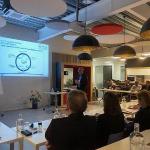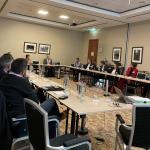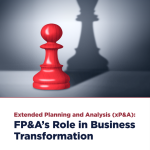The 7th meeting of the Brussels FP&A Board took place on 13 February 2020 at the...
The 9th in-person Brussels FP&A Board met on the 11th of May 2023 at the beautiful Spaces Manhattan Center in Brussels to discuss the evolution from Financial Planning and Analysis (FP&A) to Extended Planning and Analysis (xP&A).
28 senior finance leaders gathered to listen to the presentations by Larysa Melnychuk, the Founder and CEO of FP&A Trends Group and International FP&A Board and Werner Van Dessel, Head of Finance - Technology Integration at LSEG, about his company's case study through their journey towards xP&A.
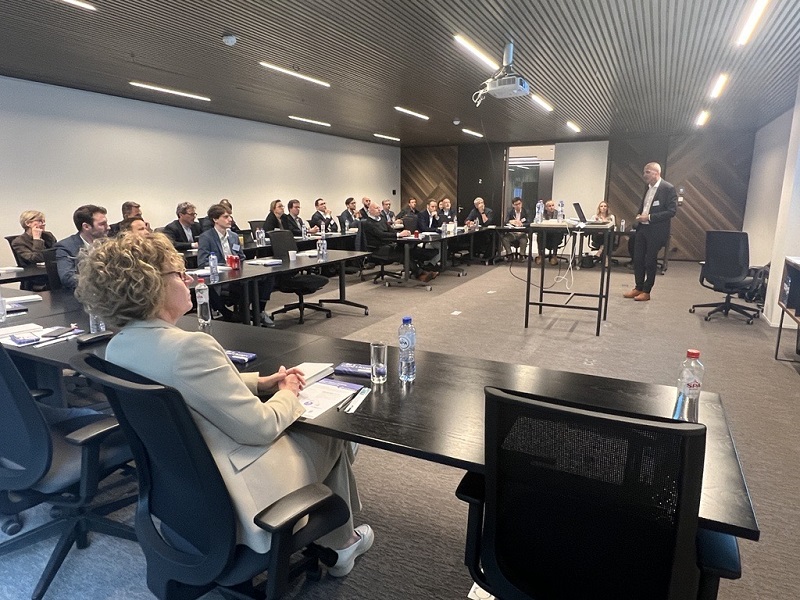
Figure 1: The Brussels FP&A Board Members (May 2023).
Starting Point
We kicked off the evening with Larysa Melnychuk welcoming all the attendees. She chaired the meeting.
As part of the introductions, each board member was asked to provide the biggest FP&A challenge they faced at the time. The following were the challenges stated by the Board:
- Data & insight,
- Volatility and uncertainty,
- People (skills),
- Communication,
- Changing environment,
- Accounting changes,
- Sound business decisions,
- Agility,
- Harmonisation,
- Forecast inaccuracy.
Amongst the challenges listed above, the Brussels FP&A Board Members consensually agreed that the following 3 were key for their respective organisations: agility, data & insight and volatility & uncertainty.
Moving from FP&A to Extended Planning and Analysis (xP&A)
The Board then engaged on the subject of the day, "Moving from FP&A to Extended Planning and Analysis (xP&A)". During the initial stages of the discussion, the Board Members agreed that traditional FP&A planning methods do not work anymore.
The Brussels FP&A Board agreed that traditional FP&A planning methods presuppose disconnected processes, multiple planning systems, inflexible models and one future. Larysa introduced to the Board the concept of "The Uncertainty Cone". It illustrates three main challenges with traditional FP&A methods as follows:
- The predictability span (PS) is shrinking.
- Only within the PS, we can plan traditionally.
- Outside PS, we should expect uncertainty/multiple futures.
How Сan We Plan for Uncertainty?
The Board agreed that Scenario Planning is critical for the future and to plan for uncertainty.
Scenario Planning is a method that deals with uncertainties by considering many alternative futures. It requires agility, a collaborative approach and regular screening of risks and opportunities.
Extended Planning & Analysis (xP&A): Key Concepts and Definitions
As the Board continued to explore the subject for the day, the following question was asked:
"What is xP&A?"
XP&A is a harmonised framework that aligns three key planning processes: Strategic, Finance and Operational – horizontally and vertically integrated as a single, continuous process.
Stephane Levratti, VP Finance at IBA, shared his experience of harmonising these 3 planning processes. Key lessons from their experience were as follows:
- Machine Learning is key in the medical device industry as it helps predict the future and can enable medical professionals to develop better diagnostic tools to analyse medical images.
- Connected systems help predict the future.
- A harmonised organisational platform is critical as it drives integration and simplification, which ensures agility.
Stephane mentioned that the next step on their journey to xP&A was automation and using Machine Learning to find the right drivers and resources.
Key Success Factors of Integrated FP&A and Key Steps to Implement xP&A
During the Board discussion, we also explored six key success factors of Integrated FP&A and the steps required to implement xP&A, as detailed in Figure 2 below.
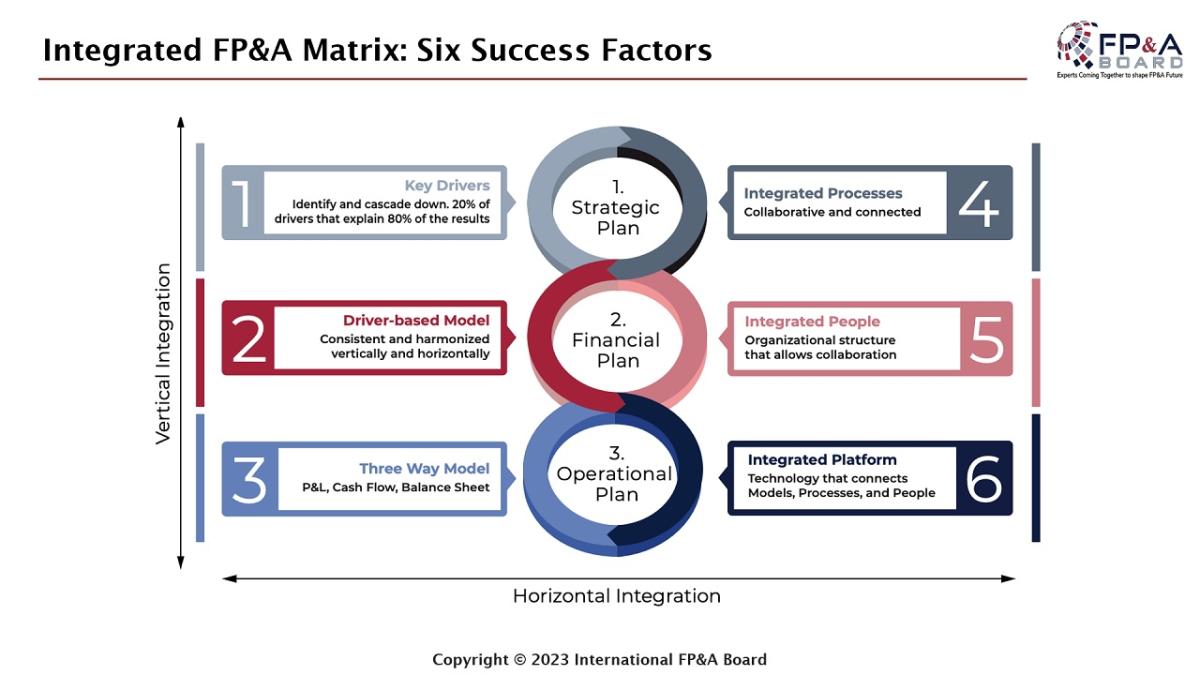
Figure 2: These are essential factors for Integrated FP&A.
According to the event attendees, moving from FP&A to Extended Planning & Analysis (xP&A) will require agility, harmonised processes, people and platforms.
Integrated FP&A Model – Collaborative FP&A Process
As the discussion continued on the journey to xP&A, Larysa also introduced another concept to the Board, "The FP&A Maturity Model". The model helps organisations to create a transformational roadmap for their journey to xP&A. It also provides details of five levels of maturity in six dimensions, as the process of reaching maturity is multi-dimensional.
A case Study from LSEG
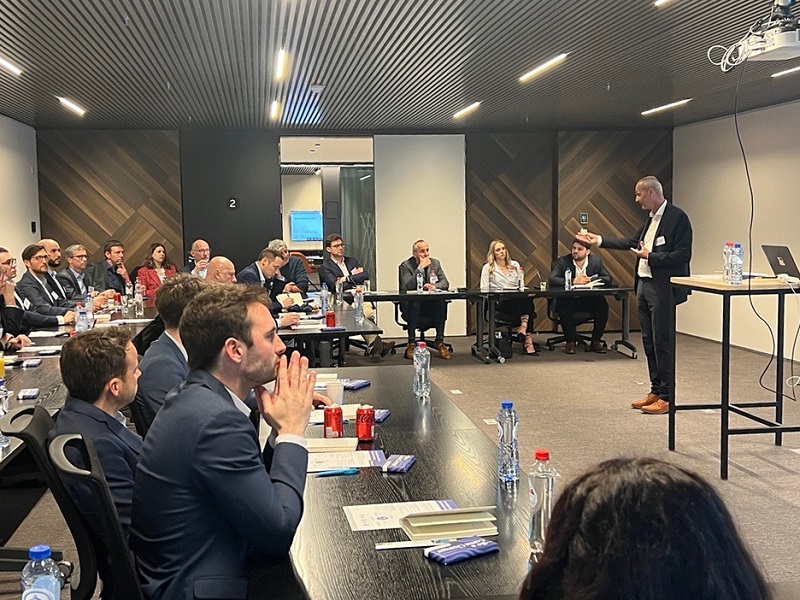
Figure 3: Werner van Dessel shares his insights during the Brussels FP&A Board (May 2023).
Werner van Dessel, Head of Finance - Technology Integration at LSEG (London Stock Exchange Group), shared their case study and experience implementing a new cloud-based ERPM and integrating front and back offices. The scope included ERP, billing & accounting and EPM.
The transformation journey started due to integrating two different organisations, which meant huge business risk.
Werner highlighted the following steps which they took for this journey:
Data (Insights):
- Clearly defined requirements for each persona, from Financial Controllers to CFO/Head of Departments, FP&A and external reporting. They drafted a maturity map using The FP&A Maturity Model for FP&A and other profiles.
- Getting structured data to avoid chaos, which Werner calls the "Spaghetti" state.
Communication:
- Key considerations include discussing transformation, details of the intention to move to the cloud, and identifying the operating model.
People (mindset):
- Train people on how to adopt the new cloud-based ERPM.
- Collaboration with employees is core to success.
Processes:
- Transparent, simplified and consistent planning and budgeting process across the organisation was developed to ensure agility and integration of processes and models.
- Integrate strategic planning, target setting, annual budget and Rolling Forecasts to ensure accuracy.
- Werner stated that LSEG is still in the early stages of their journey, and the key to success is data (insight), without disregarding the systems and processes.
Small Groups Work
The next item on the agenda was small group work. Three groups discussed practical steps for xP&A implementation and were divided as follows:
- Data and Models (Group 1).
- Systems and Processes (Group 2).
- People and Culture (Group 3).
Below are insights coming from each group discussion.
Data and Models (Group 1)

Figure 4: The participants shared their thoughts on xP&A during the group work.
This group agreed on the following steps to be taken when it comes to data and models:
- Identify the number of existing models (financial, non-financial and operational).
- Data lineage (audit trail) is crucial.
- GAAPs – constant and increased number of changes poses a challenge, so adaptability of data and models is key.
- Data timing and availability.
- Multi-dimensional – horizontal (on the P&L lines), but moving vertically (Revenue, COGS, etc.) is needed.
- Data alignment is fundamental. Operational data is key to strategic financial plans.
Systems and processes (Group 2)
The key takeaways from this group's discussion were as follows:
- Having more systems makes it difficult for the journey. A global vision (IT Architect) is key from the start. Fewer systems in place can reduce complexity.
- Identify areas of the systems for added value.
- Harmonise processes to tackle some difficulties from different countries (i.e. payroll by country).
- Communicate around the processes – use internal communication channels.
- Process maintenance and governance are key – ensure new employees embrace the processes to avoid repetition.
- The group mentioned that it takes time and energy to have good systems and processes, but people must understand them through proper training.
People & Culture (Group 3):
This group mentioned that People and Culture should always come first. The organisation first needs to establish the right culture and then needs the right people to drive the culture.
Key takeaways include:
- Communication is very important.
- The right ambassadors to support change and transformation should be trained to communicate the right message.
- To ask the following question about people: "Can you do this with current people to move from level 1 to 5 on the maturity stage?"
- People are about finding the right balance – leading by example, which comes back to culture.
- Explain the change and journey throughout the process.
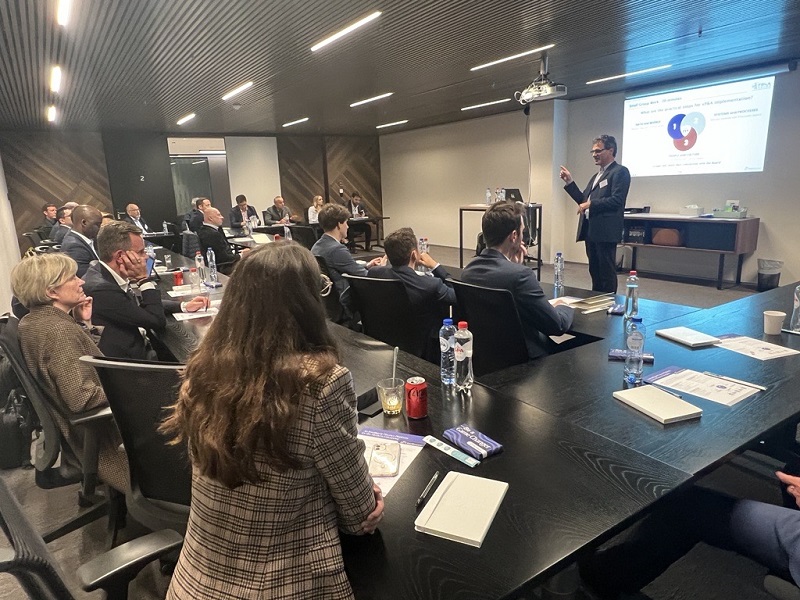
Figure 5: One of the Brussels FP&A Board Members presents the results of the group work to the audience.
All teams agreed that there is a need to look at all three elements together and revisit them during every step of the journey to ensure that xP&A implementation succeeds.
Conclusions and Recommendations
The Board concluded that the traditional FP&A methods do not work anymore. xP&A is the way to go as it involves collaboration, agility, data-driven storytelling and Scenario Planning, which are key for FP&A leader of the future who is required to manage the business value, handle uncertainty and minimise business risk.
Larysa thanked sponsors and everyone for their participation, and the session rounded up with networking.
The Brussels FP&A Board was sponsored by OneStream Software in partnership with IWG and Page Executive.
Subscribe to
FP&A Trends Digest

We will regularly update you on the latest trends and developments in FP&A. Take the opportunity to have articles written by finance thought leaders delivered directly to your inbox; watch compelling webinars; connect with like-minded professionals; and become a part of our global community.


